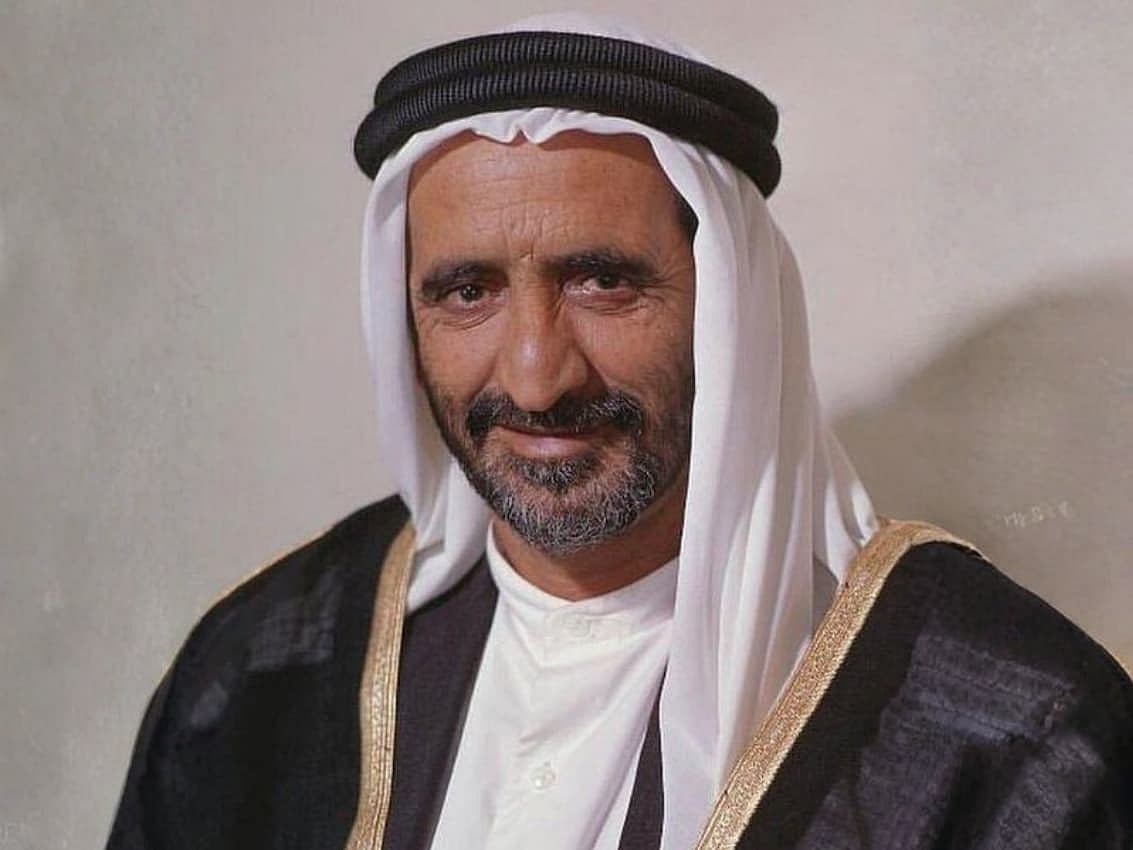Remembering Sheikh Rashid bin Saeed, the visionary who shaped Dubai's future
35 years since his time, his dream continues to shape every corner of this city

Dubai: Making history by continually achieving the impossible is what defines great leaders, and Sheikh Rashid Bin Saeed Al Maktoum (1912-1990) was among that rare class of visionaries. Thirty-five years after his death in October 7, 1990, his legacy for Dubai is an ever-perpetuating gift of vision, courage, philanthropy, and excellence that continues to steer the emirate to greater heights.
As the eighth ruler from the Al Maktoum family, Sheikh Rashid served as the Ruler of Dubai from 1958 to 1990, becoming the rolemodel that illuminated every aspect of the emirate's growth. Endowed with the finest qualities of the heart and mind, including generosity, acuity, compassion, empathy, kindness, daring, farsightedness, the rigour of discipline, and the spirit of inquiry, his transformative abilities fused Dubai's elements to forge its indomitable spirit.
Laying the foundation (1939–1958)
Sheikh Rashid's vision for a highly advanced city started taking shape when he was directly involved in the running of the city's affairs as Crown Prince under his father, Sheikh Saeed’s rule, beginning in 1939. His initial efforts focused on establishing fundamental state institutions and improving daily life for his people:
1941: Set up a much-needed Postal Office.
1949: Officially initiated the medical healthcare system with the opening of Al Maktoum Hospital.
1954: Signed an agreement with the then-Imperial Bank of Iran stipulating that the bank would employ UAE nationals, thus generating employment opportunities.
1958: Established a municipal council to oversee hygiene, sanitary facilities, and all development plans for the emerging modern city.
Upon his father's death in 1958, Sheikh Rashid became the Ruler of Dubai and relentlessly pursued development plans, famously believing that Dubai should plan for a time when oil would no longer be the city's main source of income. His vision was to diversify the economy and transform the city into a commercial hub, which he summarised in his famous quote: “My grandfather rode a camel, my father rode a camel, I drive a Mercedes, my son drives a Land Rover, his son will drive a Land Rover, but his son will ride a camel.”
Architecting modern Dubai: Key infrastructure projects
To achieve his goal of attracting the world to Dubai's shores and providing essential services to its people, Sheikh Rashid masterminded a series of grand and ambitious infrastructure projects that powered the emirate into the future:
1959-1960: Commenced the excavation of the Dubai Creek in 1959, with the expansion completed by 1960, aiding shipping activity.
1960: Officially inaugurated Dubai International Airport.
1963: Opened the dual carriageway Al Maktoum Bridge, linking the twin cities of Dubai and Deira.
1963: Established the National Bank of Dubai, the first national bank.
1966: Oil was discovered in commercial quantities, allowing oil revenues to escalate Dubai's growth in fields like education, health, and social security.
1972: Construction of Port Rashid, helping ease the load on existing port facilities.
1975: Built the Al Shindagha Tunnel.
1976: Laid the foundation for Jebel Ali Port, which commenced partial operations in 1979.
1978: Construction of the Dubai World Trade Centre, which was the first high-rise tower to be built on Sheikh Zayed Road.
1983: Completed Dubai Drydocks.
These projects laid the groundwork for the city's current global acknowledgment for its excellence in governance and infrastructure, resulting in the rapid springing up of modern amenities; schools, hospitals, post offices, supermarkets, and hotels.
The architect of the Union
Sheikh Rashid's vision extended beyond Dubai's borders. In 1968, he met with Sheikh Zayed bin Sultan Al Nahyan at Saih Al Sadeera, located on the border between Dubai and Abu Dhabi, to discuss the foundation of a union. This initiative marked the jump start to the unity of the emirates.
Following negotiations, the dream became a reality in 1971 with the announcement of the United Arab Emirates federation. Sheikh Rashid assumed the role of the UAE's Vice-President (1971-1990) and later became the Prime Minister (1979-1990), working hand-in-hand to ensure the nation's success.
A legacy of people and tolerance
Sheikh Rashid’s lofty prescience was cohabited with heartfelt humanitarianism. He always made time for people from all walks of life. His abiding belief in religious tolerance and respect for others’ beliefs formed the bedrock of Dubai’s enduring tradition of coexistence and harmony for its multicultural population.
Furthermore, he foresaw the crucial role of women in the nation's future, stating: "If women succeed in education they will know how to help the UAE. One day I foresee women playing a vital role in the economy, social areas and government."
Sheikh Rashid’s enduring legacy is a timeless lesson for posterity on the true meaning of progress: putting people at the heart of it while putting the mind to work for their well-being.
Sign up for the Daily Briefing
Get the latest news and updates straight to your inbox
Network Links
GN StoreDownload our app
© Al Nisr Publishing LLC 2026. All rights reserved.